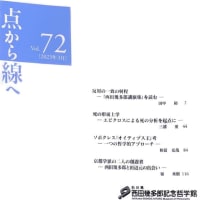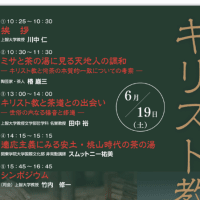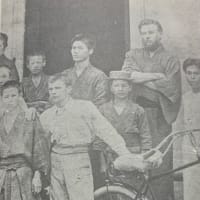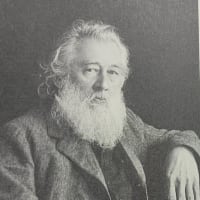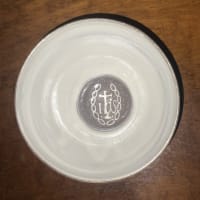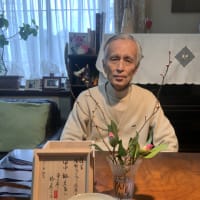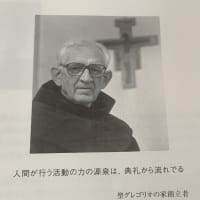The logic of "Basho (topos or receptacle)" was originally proposed by Nishida in order to overcome essential limitations of the "objective" logic which fails to function in the presence of the contradictions of self-transcending actualities. The logic of Whitehead' s metaphysics is also characterized by the interaction between objectivity and subjectivity in the creative process which grounds self-transcending actualities. The difficult but fundamental problems which are common to Nishida and Whitehead necessitate our reinterpretation or reconstruction of both systems in such a way that it will result in a new synthesis of process theology and the philosophy of topos in Nishida's sense.
The prospects for such reconstruction are bright , because the textual analysis of PR guarantees our reading of Whitehead in the terminology of both process and topos. The first part of PR is a prolegomena of the whole system, the second part is the explication of "the philosophy of organism" In contrast to other philosophers, and the third and fourth parts are "the cosmological scheme developed in terms of its own categoreal notions without much regard to other systems of thoughts".(35) The third part, titled "the theory of Prehensions", is the theory of process which contains "the genetic analysis" of an actual occasion. The fourth part, titled "the theory of Extension", is the theory of topos which contains "the extensive analysis" of an actual entity in the "cell theory" of actuality.(36) These two parts may be characterized as the real internal constitution of Whitehead's metaphysics which provides the philosophical foundation for "process theology" as the final interpretation of the whole system. Therefore, the structure of PR itself helps us to understand that process theology does need the logic of topos already present in Whitehead's theory of the extensive continuum.
What is the metaphysical role of the extensive continuum, then? The notion of a "continuum" involves both the property of indefinite divisibility and the property of unbounded extension. There are always entities beyond entities, because nonentity is no boundary. (37) The infinite openness of the extensive continuum is the essential characteristic of our "being in the world (in-der-Welt-sein). This openness within the world is referred to by Ueda as "the double structure of Topos (Place)" in his explanation of the horizontal structure of experience. Ueda writes; (38)
The horizon moves as we move, but there is no horizon that has no direction beyond wherever we may go. This is because the horizon itself is finite in its essence . . . .People do not always pay due attention to the fact the "beyond the horizon" belongs within the horizontal structure itself. I would like to emphasize specifically this point when it comes to understanding Nishida's thinking. The double nature as such of the horizon and the "beyond the horizon" constitutes the horizon of experience. By this double nature is opened the depth dimension. We cannot comprehend the beyond, but when we understand that it is beyond our comprehension, this "incomprehensible" is an absolute limitation and yet at the same time constitutes in exactly such a manner an avenue leading to the infinite topos (place) .
The depth dimension which Ueda refers to above is indispensable to our understanding Nishida's philosphy, because we realize the meanings of "the unity of the opposites (coincidentia oppositorum)" in this dimension of the logic of topos. The doctrine of the simultaneous interpenetration of all entities which Nishida inherits from Hua-Yen Buddhism would be meaningless if we fail to recognize the paradox of the infinite openness within the world.
Whitehead certainly recognizes this paradox of being-in-the-world , and develops the doctrine of mutual immanence in his philosophy of organism. Although we do not stand in a position of grasping the whole world from without, we "prehend" the whole world from within in a limited sense. We can accept the Hua-Yen doctrine of mutual immanence on the basis of the theory of the extensive continuum. According to Whitehead, the extensive continuum expresses "the solidarity of all possible standpoints throughout the whole process of the world."(39) A11 actual entities are related to one another according to the determinations of this continuum; all possible actual entities in the future must exemplify these determinations in relation to the already actual world. The reality of the future is bound up with, the reality of this continuum. This continuum may be called the topos of the creative advance of the actual world , i.e. the becoming , the perishing , and the objective immortality of actual entities. As regards the role of the extensive continuum as the ground of the mutual immanence of all actual entities, Whitehead writes: (40)
Every actual entity, in its relationship to other actual entities is somewhere in the continuum, and arises out of the data provided by this standpoint. But in another sense it is everywhere throughout the continuum; for its constitution includes the objectifications of the actual world and thereby includes the continuum; also the potential objectifications of itself contribute to the real potentialities whose solidarity the continuum expresses. Thus the continuum is present in each actual entity, and each actual entity pervades the continuum. (italics are mine)
Most process theologians seem to overlook the metaphysical role of the extensive continuum in the above citation. They argue only the unilateral immanence of one actual entity in another, i .e. the immanence in the mode of causal objectification, and thereby do not understand that the philosophy of organism needs the mutual immanence of all actual entities.












